6 Tips to Help You in Generating More B2B Leads for Your Business
6 Tips to Help You in Generating More B2B Leads for Your Business

The success of a business, whether in the B2B or B2C sector, is directly dependent on leads. Leads produce sales, and sales lead to profits. As a B2B company, the problem is, in particular, generating concrete leads is a lot tougher than you may think.
Unfortunately, as much as we’d all wish there to be one, there is no “silver bullet” to B2B lead generation. Instead, the success of each lead depends upon its circumstances, such as the type of target audience, industry, and services tailored to each opportunity.
While there are a lot of factors that influence the outcome of your B2B campaigns, the most successful B2B businesses follow a set of best practices. Here are six ways to generate solid leads for your business, ultimately resulting in those all-important sales.
1. Cold email campaigns
They may seem a little dated in 2022, but don’t believe the rumors - cold email campaigns are, in fact, alive and well.
Many assume cold emails to be a waste of time, given that we all receive so many of them every day and leave them unopened, just crowding our inboxes. But according to GMass, the average cold email opening rate is currently around 1-5%. That may seem like a small figure, but if you send out 100,000 cold emails, that can result in roughly 1,000 to 5,000 successful opens and potential B2B leads for your business.
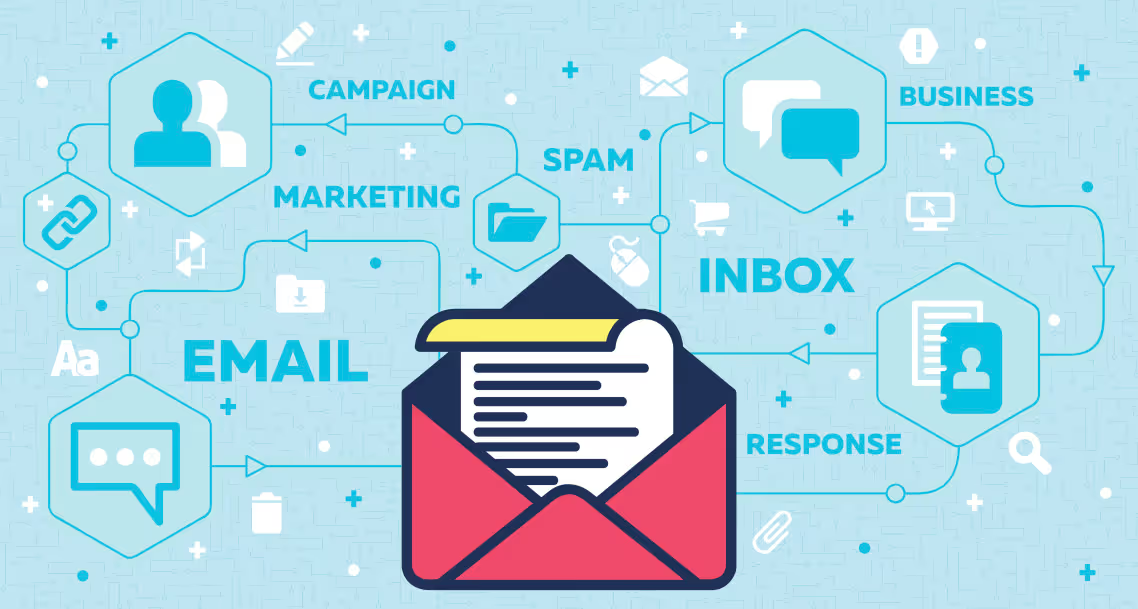
Ideally, you want to be achieving a cold email open rate of about 15 to 25%. The secret to crafting cold emails that receive a high open rate is by successfully hitting your target audience in the right places, identifying key pain points, and offering relevant content for the reader.
To identify your target audience and propel your B2B lead generation, you must create a buyer persona aligned with your content marketing stance. Start by analyzing your e-commerce site website data, looking for trends in the behavior and demographics of your website visitors. You could also use a chatbot on your site.
Areas you want to note concerning your website users include budget, location, and other websites, products, and services they use.
A proven method of extracting the vital user data you need for your buyer persona is sending out profile surveys. Online survey software such as SurveyMonkey makes it easy - you can choose the key questions and then send the surveys out to your users en masse.
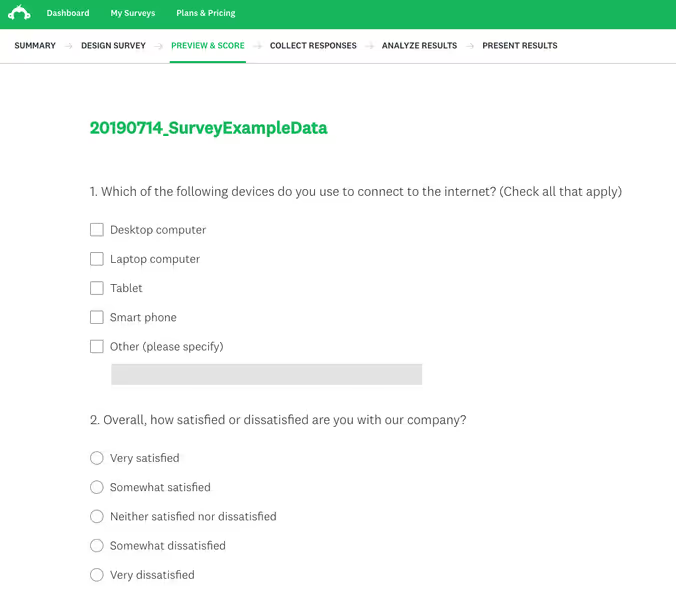
Then, gather the data from your responses to write up your detailed buyer personas. Your buyer persona should include likes, hobbies, demographics, and website habits to build a picture of your business users.
Finding users' email addresses is another obstacle to clear before sending cold emails. You can do this by using email finder tools if you know the URL of their website.
You're now ready to launch your cold email campaign. A good tip is to give your cold email a structure. Think of your template as a story with a beginning, middle and end.
Start by explaining to your prospective client that they are missing out on something that could benefit them. Then, explain how a product or service could help their business.
Use a "bridge" to show how your business can offer that product or solution, and link them over to your website with contact details, your URL, or both.
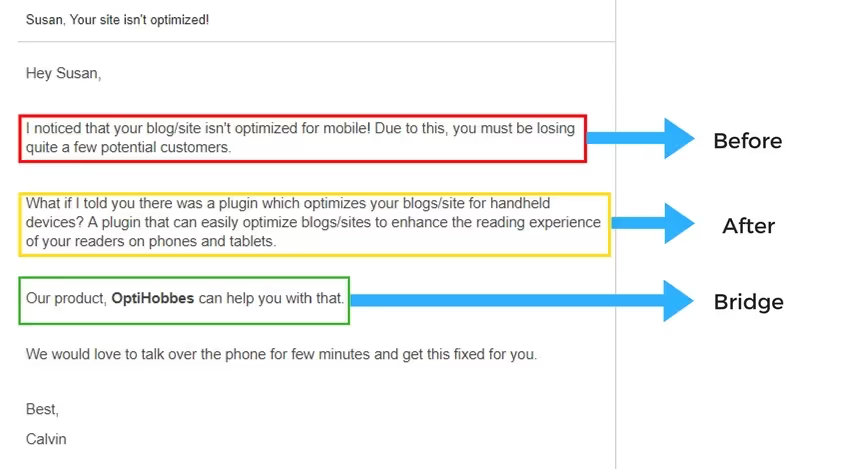
See how this cold email targets a "pain point" for the recipient? Identify an area that the recipient is fearful of missing out on (FOMO), and show how your business can provide that solution. This streamlined strategy will help you craft a successful cold email campaign for your B2B lead generation process.
2. Tap into social media
All businesses must harness the power of social media nowadays. B2B brands benefit from particular social platforms, such as LinkedIn and Twitter.
Social media is also an excellent traffic driving channel for your B2B business and taps into a lucrative marketplace. According to Articulate, 55% of B2B buyers look for information on social media to do thorough research before they buy, highlighting the importance of your business' presence on social platforms. Furthermore, 83% of marketers use social media specifically in the B2B sector, meaning that you're missing out if you don't use it to its potential.
You can also use social media to team up with influencers or social media users with large, popular followings and drive traffic to your business from their platform, attracting a brand-new audience to your company.
In the example below, General Electric has both B2B and B2C business units. While we know GE more for light bulbs and other consumer electronic goods, the company also powers the world through energy, healthcare, transportation, and manufacturing infrastructure for B2B businesses.

In May 2019, they teamed up with artist Zac Posen (2 million Instagram followers) to promote one of their creative designs, a polymer dress, to be used at the Met Gala. The Instagram post above promoted GE Additive, a GE subsidiary that provides 3-D design and printing products to businesses of different sizes. By combining high fashion and additive manufacturing, GE created a buzz around one of its emerging B2B business units.
3. Create lead magnets
Getting clients to hand over their email address only so that you can bombard them with marketing spiel is not an attractive proposition to many. With this in mind, a lead magnet can help you to incentivize customers to send you their addresses. A lead magnet is valuable online content offered in exchange for something in return, such as an email address or money. Organic lead magnets are great ways to access higher conversion rates and are less expensive to create than bought leads.
In the B2B world, clients want your business to improve their business in one way or another, but one way to get their email addresses is with a free item, such as case studies or white papers. The psychology behind free items and giveaways draws people’s eyes is like no other marketing technique and can be utilized to your B2B lead generation advantage.
Another lead magnet idea is via pop-ups. They may be helpful for incentivizing users to part with their email addresses for a gift, trial, or service. See how the B2B brand Contently places a visually pleasing pop-up on their page, offering users a free content consultation.
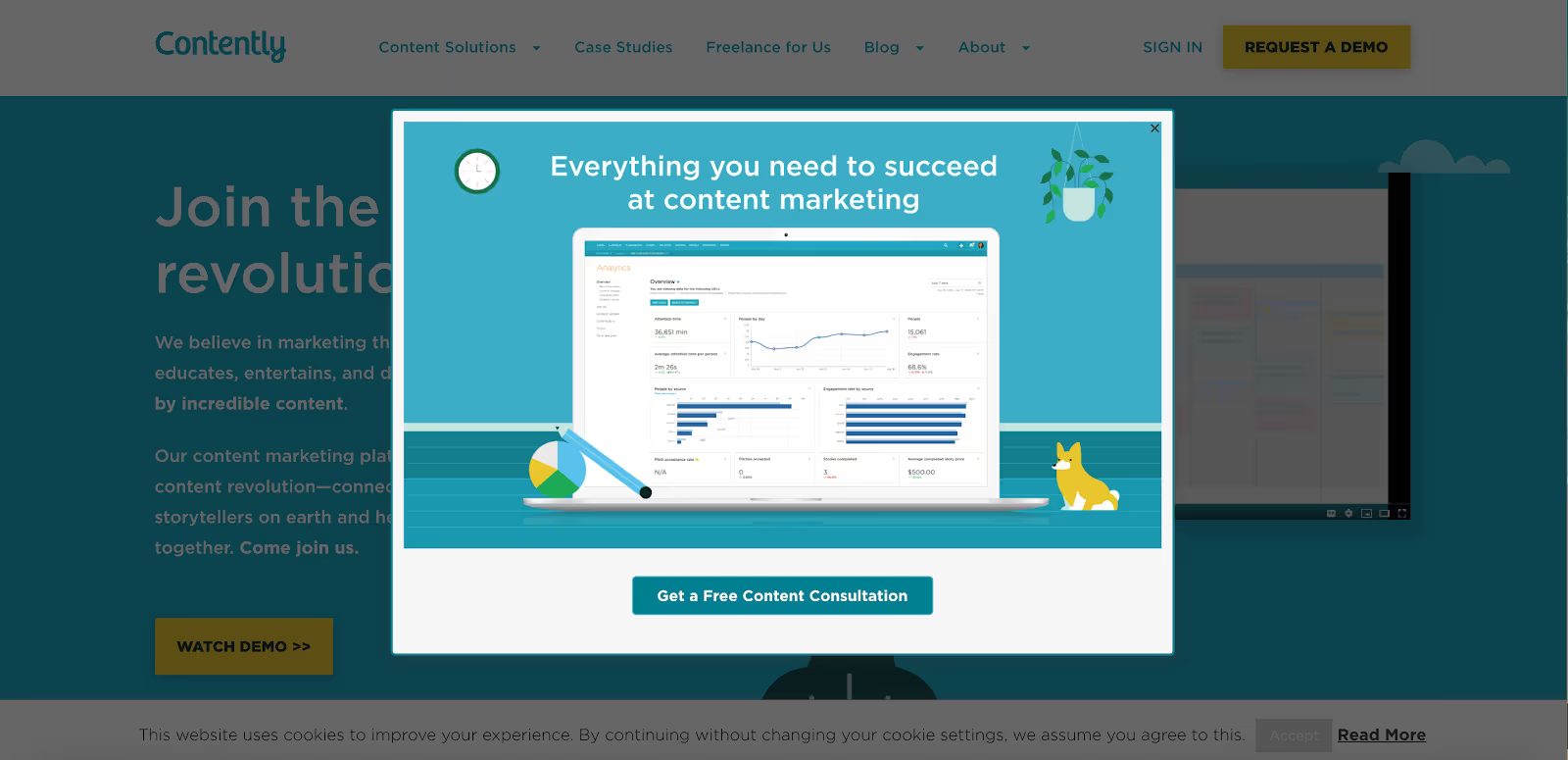
This pop-up is clean and a lot less annoying than many other pop-ups we’ve all experienced on the web. It’s also a great example of a CTA (call-to-action button), in that it directly instructs the reader to click the button at the bottom to sign up as a result of the enticing "get a free consultation" copy. This results in success for Contently, as they get exactly what they need - the reader’s email address.
Using images can also improve your conversion rate. Research by Sleeknote shows that popups with images have a conversion rate of around 3.8%, whereas those without have only 2.07%. In the example above, the screenshot on the pop-up window shows how Contently looks, giving potential users a glimpse of what they can expect.
Consider these options when thinking of successful lead magnets for your B2B lead generation strategy.
4. Start a PPC campaign
PPC, or paid-per-click advertising, is an excellent way to generate more B2B leads for your business.
While we usually associate PPC with paid searches on Google, you can also use PPC to target inactive visitors to your website who decide not to buy anything or sign up for anything, resulting in missed conversions. Those visitors may not have converted yet, but the fact that they even visited your website in the first place demonstrates some level of interest in your services.
You may also use PPC ads to follow these visitors when they leave your website. For example, Google Ads can retarget those missed opportunity users with adverts that pop up when they’re browsing the web elsewhere or maybe watching a YouTube video.
Every time these targeted ads are clicked on, you are charged a small fee. In addition, a service such as Google Ads can give you access to valuable data that you can use to track the success of each PPC campaign you are running.
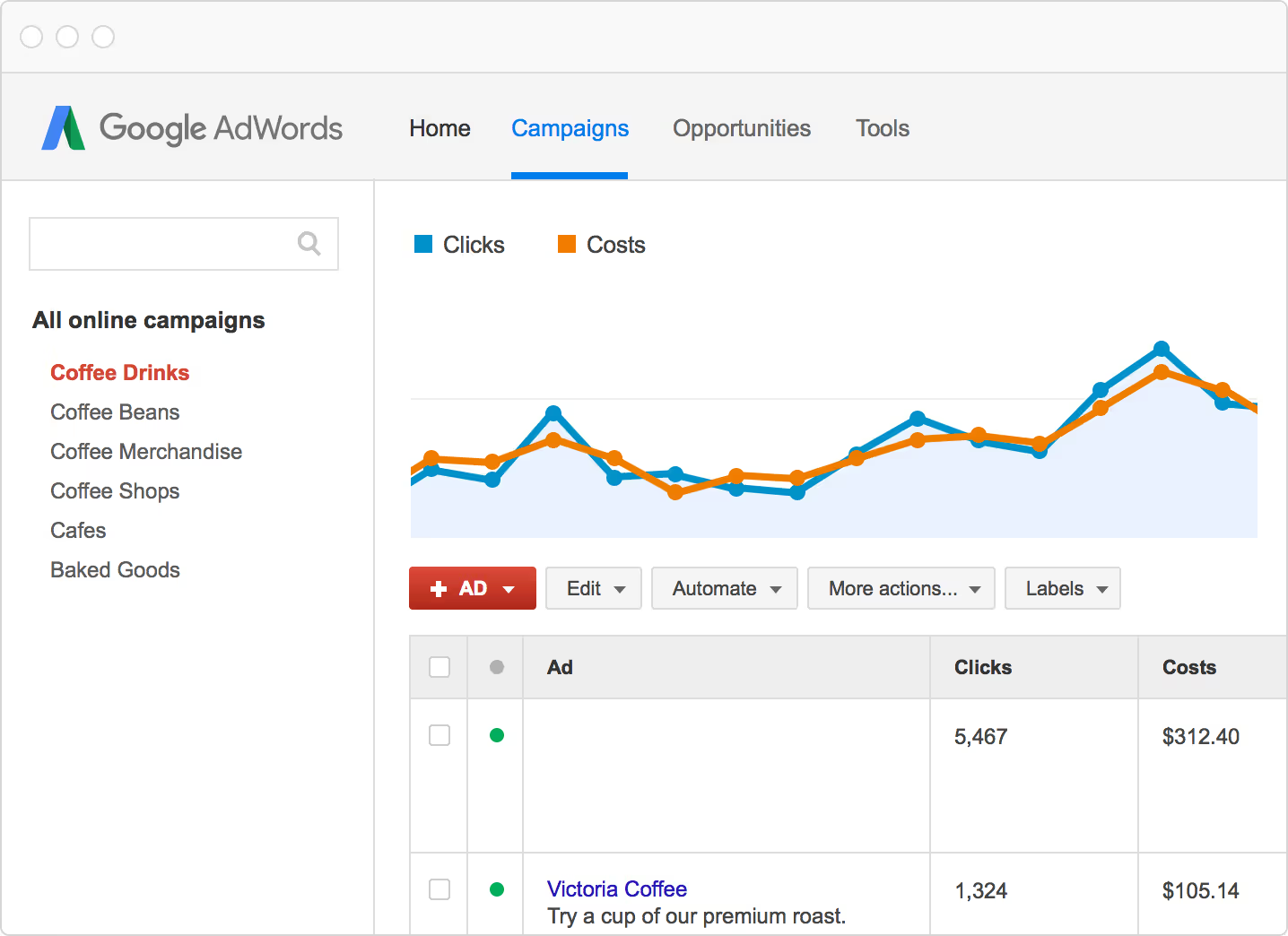
To create a successful PPC campaign, you need to add a tag to your pages to track each user. Then, each page needs to be customized to send out adverts specifically tailored to each user, resulting in higher conversions and stopping you from needlessly wasting money on targeting users with the same advert. Also, you should keep monitoring your page's availability because if the page you promote via PPC goes down, you lose the click money, and the potential lead may leave your website and never come back.
5. Experiment with affiliate marketing
If you’re struggling with B2B lead generation on your own, why not start affiliate marketing to give you some extra support?
Affiliate marketing involves paying others (such as bloggers) to advertise products and services to generate sales and conversions. According to Uniqodo, 81% of brands use affiliate marketing as of 2020 as part of their general marketing and lead generation process. Furthermore, spending on affiliate marketing increases by over 10% each year, showing a booming service.
Therefore, to ensure that your affiliate marketing strategy is effective, you need to get some specifics right. First, clarify your marketing goals. It’s no use getting an affiliate marketer on board when you have no clear vision of how your B2B business moves forward.
Second, you need to decide how much you are willing to pay an affiliate marketer and work it into your marketing budget to balance the books. Third, you need to select the right affiliate for your business to guarantee results. Finally, don’t waste time on affiliate marketers with the wrong ideas - you will only waste time, money and resources. Instead, find someone who will be able to effectively target your specific customer base to produce those all-important leads.
6. Try contests and quizzes
Consider offering your website visitors the chance to enter a quiz or giveaway in exchange for their email addresses.
Quizzes are often successful vehicles for B2B lead generation. First, quizzes and contests are generally more engaging for users than standard lead magnets such as pop-ups. The user will also likely be curious about the results, especially if it reveals something fun about themselves. Finally, quizzes are a type of lead magnet that doesn't often require much in the way of a follow-up due to their high take-up rate.
Tools such as Woorise make it simple to create quizzes for your website visitors. The quiz doesn't even need to be complicated - a simple true or false style quiz can work just as well as a more in-depth personality quiz and should be much easier to create.
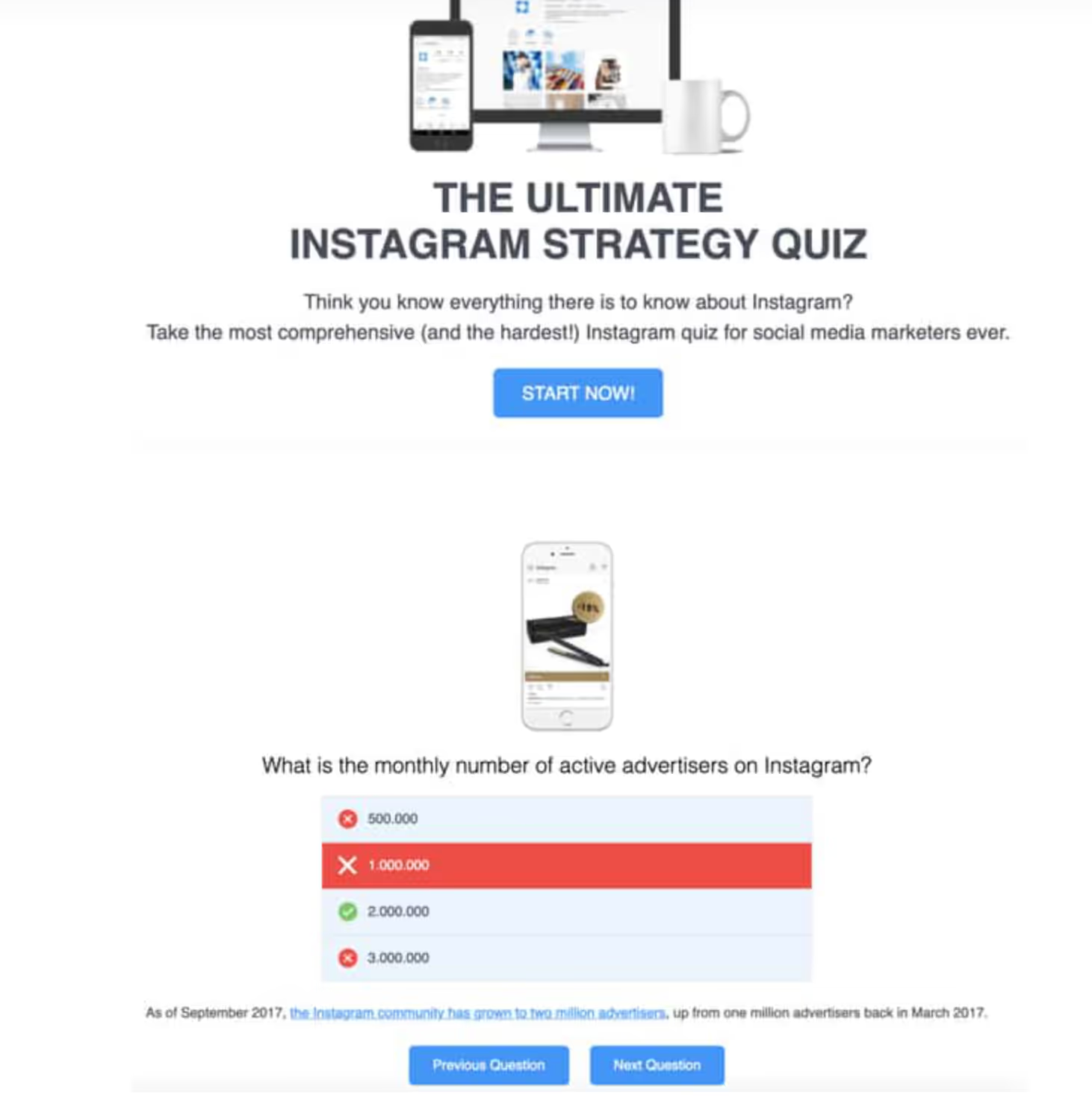
For example, Iconosquare is an analytics and management platform marketers use to monitor their social media performance. They created a terrific lead generation quiz called "The Ultimate Instagram Strategy Quiz" to let users know their Instagram strategy level. The design and layout were very enticing.
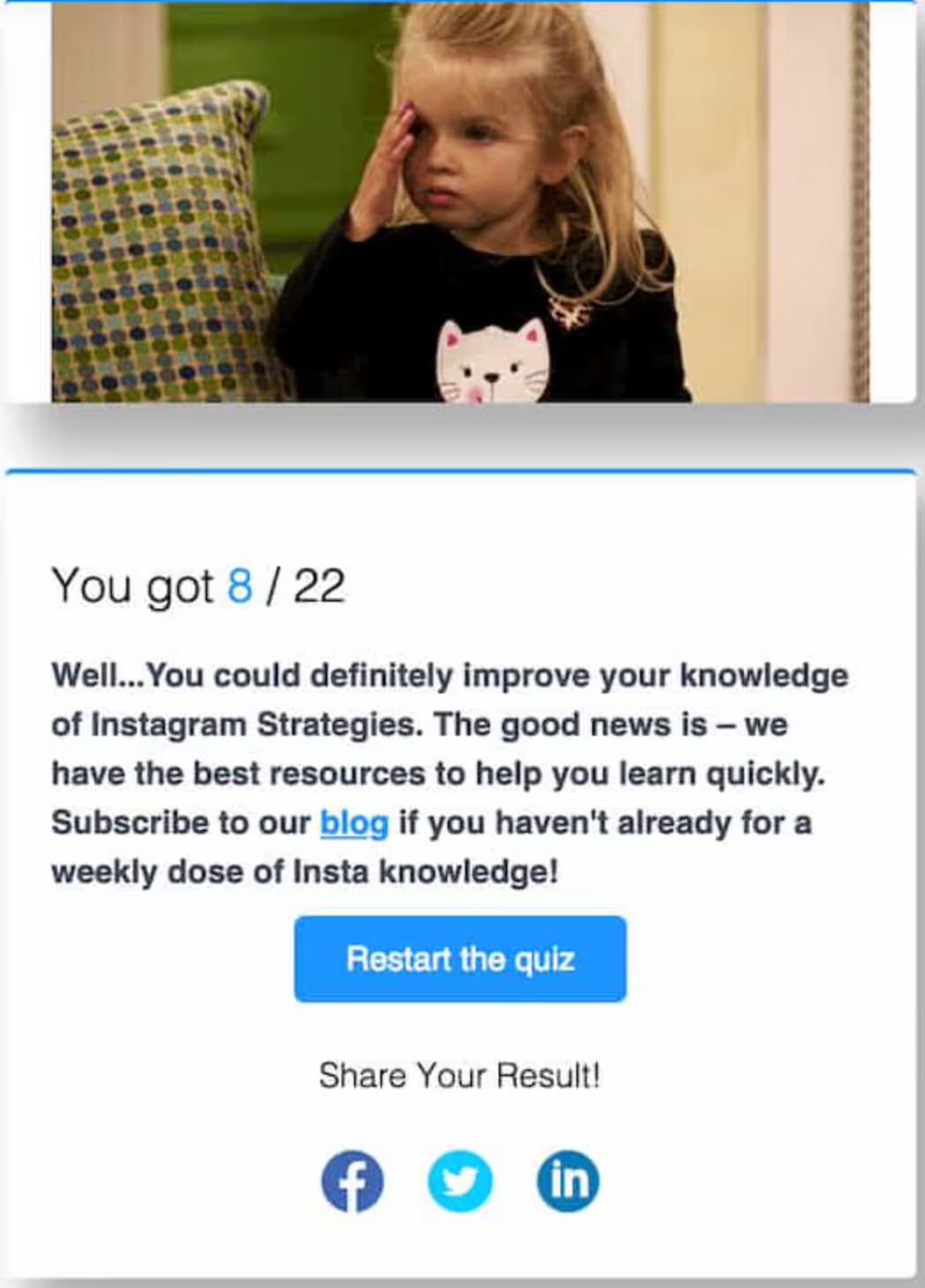
Aside from letting the user know where they stand in terms of Instagram strategy, the quiz also allowed users to share their results on social media. It also contained a subscription link to the Iconosquare blog, where readers can learn more about Instagram marketing tips and best practices.
Quizzes are interactive and interesting for users, making them a useful component of your B2B lead generation strategy toolkit. In addition, they’re simple to create and aren’t particularly expensive, so consider them as a vital tool for marketing plans in the future.
In closing
Generating effective leads for your B2B business isn't easy. Still, with the right strategy and guidance from the tips we've discussed in this article, you can make a real difference to the quality of traffic your company attracts.
Don't be afraid to make changes along the way, as the marketing world is forever shifting. With a solid B2B lead generation strategy behind you, the sky's the limit for your brand.
Good luck with the future of your B2B marketing scheme.
Take the faster path to growth. Get Smith.ai today.
Key Areas to Explore

Your submission has been received!









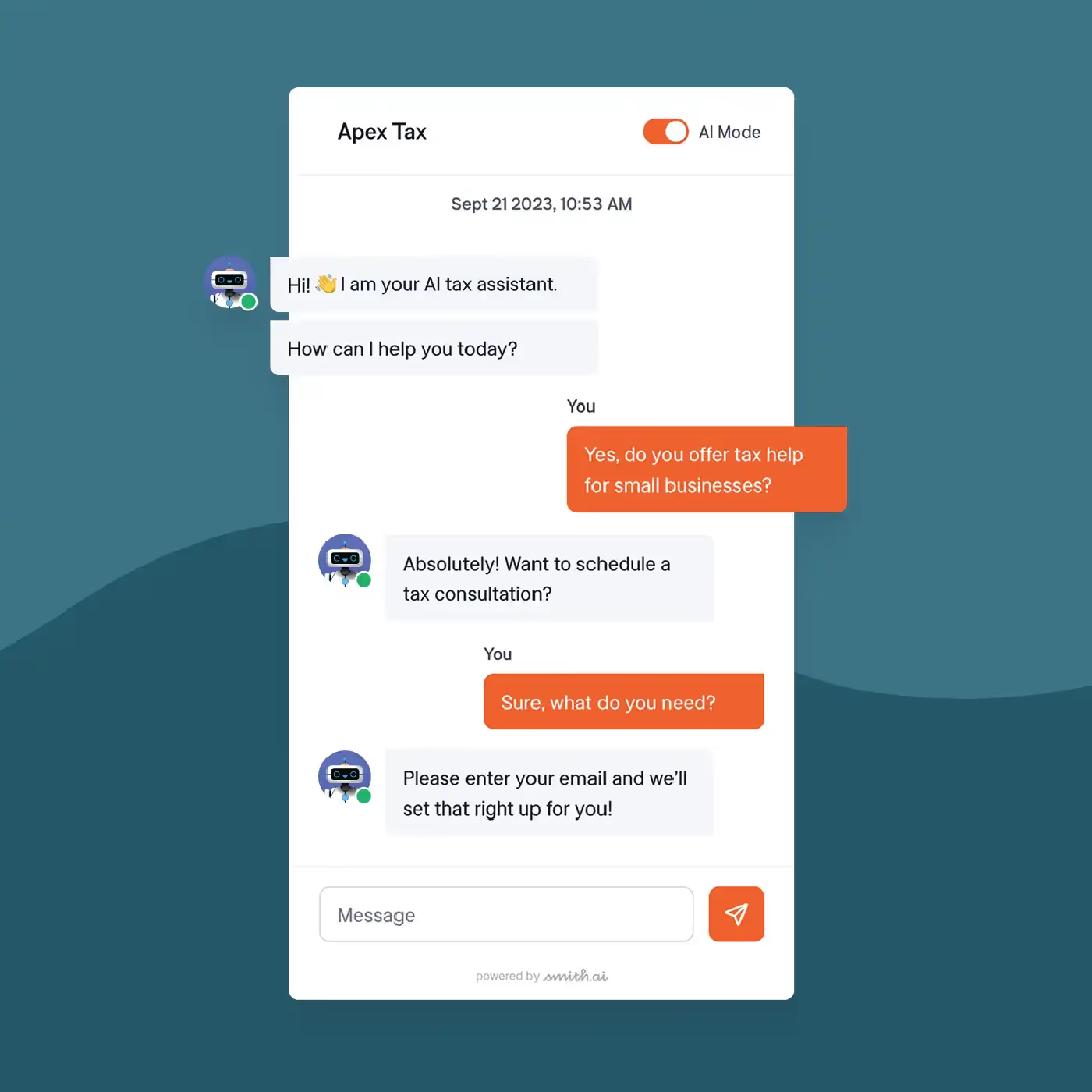




.svg)



